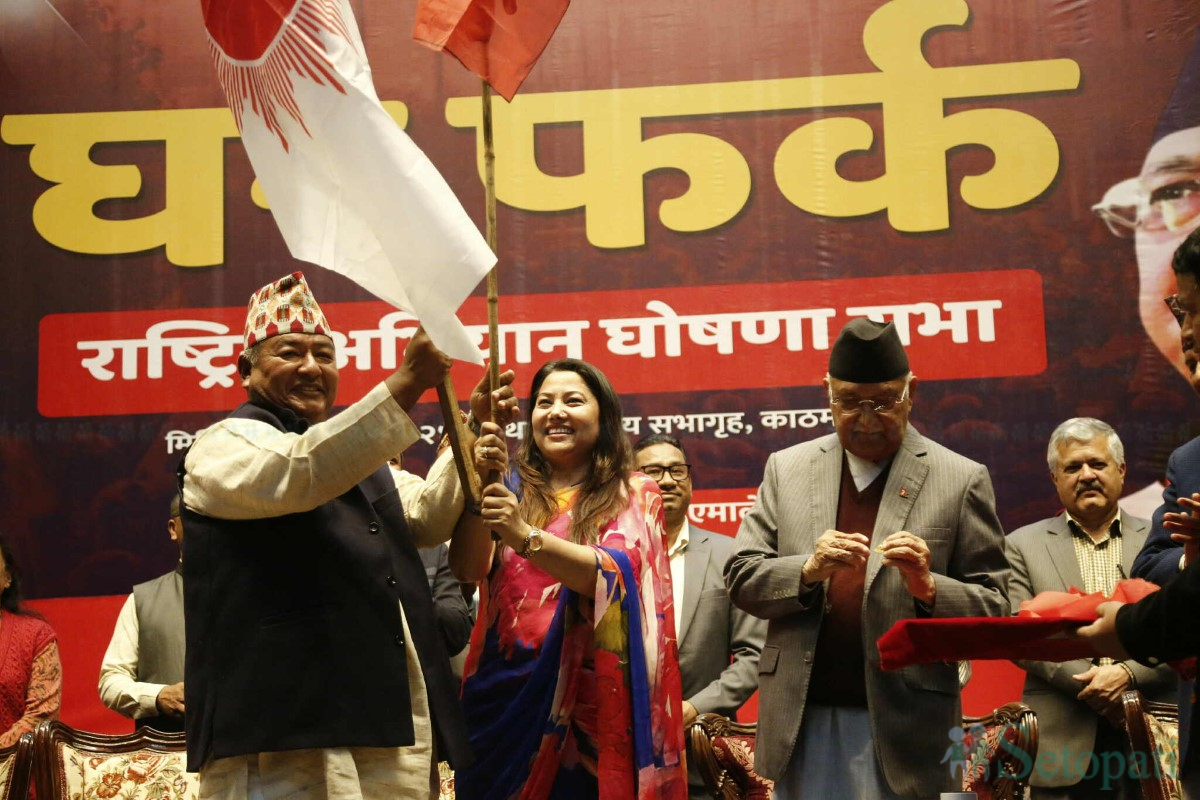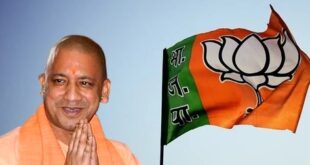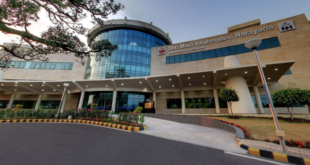 Dr. Utkarsh Sinha
Dr. Utkarsh Sinha
When Nepal’s bold and fearless female leader Ramkumari Jhakri announced her return to the Communist Party of Nepal (UML), it was not merely a political event. This decision has become a step indicating a new direction amid the ideological confusions within leftist politics and the fragmentation of organizations. Her return has also raised the question of whether Nepal’s progressive politics is once again heading back to its original path or if this is simply a pragmatic political compromise.
Historical Background and Personality Ramkumari Jhakri’s political journey began with Nepal’s student movement. She played a leadership role in the All Nepal National Free Students Union (ANNFSU, UML-affiliated) and set a new example for female activists by carving out a space in politics. Her identity was established as a leader capable of balancing leftism, republicanism, and gender equality—these three elements. When the struggle against the monarchy was in its decisive phase, Jhakri was among those leaders who fearlessly criticized the monarchy. She openly stated on public platforms that the Nepali people would no longer accept any autocratic rule. Even after the fall of the monarchy and the establishment of the republic, her political struggle continued. She is a leader who speaks both in parliament and on the streets—a rare quality that is rapidly disappearing in Nepal’s current politics.
Political Significance of Return to UML
Her relationship with UML was never just organizational. It was like an ideological bond, where blending Marxism-Leninism with democratic values became her personal mission. In recent years, due to differences with Madhav Nepal, when she left the party and joined the ‘Unified Socialist,’ her criticism often was that unnecessary divisions in the leftist camp had weakened the direction of the people’s movement. Today, as she returns to UML, it is a sign that she now believes the reorganization of mainstream leftist politics is possible under the same umbrella where the roots of mass organizations are still alive. Her return can serve as inspiration for the generation within the party that is seeking balance between ideological purity and political pragmatism.

Impact on Madhav Nepal and Leftist Politics
Ramkumari Jhakri’s departure from the Unified Socialist Party is not just a personal ‘defection.’ It exposes the weakness of the idea that leftism can be strengthened by forming small factions. Madhav Nepal’s party is still struggling with lack of public support, organization, and youth leadership. The absence of an influential and intellectual presence like Jhakri will certainly weaken this party. On the other hand, for UML, this is a psychological advantage. Under the leadership of K.P. Sharma Oli, when the party is continuously fighting both the opposition and the ruling coalition, Jhakri’s support will give it ideological strength. She is not only a popular face but can also act as a bridge for women’s and youth perspectives amid the elderly leadership.
International Context and Policy Signals
Nepal’s politics in recent years has been pulled between two major sources of external influence—America and China. The deep political debate within the country over America’s ‘State Partnership Program’ and the MCC grant project showed how divided Nepal’s leaders are on foreign policy. Ramkumari Jhakri’s statements have always been clear—Nepal’s foreign policy should be independent and based on public interest. Her return to UML can be seen as a reaffirmation of the idea that the party wants to maintain distance from foreign interference in its national policy. In this period when the Prachanda-led government is facing criticism for leaning towards America and the Congress for policy instability, Jhakri’s presence in UML can sharpen the party’s identity of an “independent policy.”
Social Discourse and Women’s Leadership
Ramkumari Jhakri’s importance in politics is also because she is not just a parliamentary leader but a carrier of social discourse. She has tried to make issues of women, youth, and the middle class central to political debates. After returning to UML, she now has a broader platform where she can advance issues of gender equality and social justice at the policy level. For Nepali female politicians, Jhakri has always been an example that freedom of speech is the first right—regardless of how much criticism there may be. Her statement—”I will not fear, I will not bow”—is not just a personal sentiment but the emotion of that generation that wants to emerge from political inequality.
Future Equations and Possibilities
From a political perspective, in the coming months, UML’s strategy may bring Jhakri into a role as ‘policy discourse leader’ or a key secretarial position in the organization. She is among those leaders who provide intellectual support to the leadership and infuse energy at the public contact level. If the party utilizes her correctly, this can become a major strength for UML ahead of the 2026 elections. However, Jhakri’s upcoming path is not easy either. Balancing between the conservative and pragmatic factions in the party will be challenging. But her political history has shown that she is neither the type to compromise nor to succumb to pressure.
Also Read : Will the Nepali Youth Trust the Worn-Out Left Front Again?
Alos Read : Nepal’s Youth Revolt: Can Ram Kumari Jhakri Break the Old Guard?
Criticisms and Challenges
Critics of this move are saying that she changed parties due to personal ambition. However, her recent speeches and statements make it clear that this step is towards ideological unity and organizational reconstruction rather than any personal gain. She knows that her opponents and trolls on social media will become active again, as happened before. But she has publicly stated clearly that she will not fear any defamatory politics and will not back down from her duty to the country.
Conclusion
Ramkumari Jhakri’s return to UML opens a new chapter in Nepal’s leftist politics. It is an opportunity to rebalance leftist discourse and give ideological momentum to the organization. Her presence can fill UML with the energy it needs most today—youth trust, women’s leadership, and ideological clarity. It would not be wrong to say that with her return, UML is not just a political party but is moving forward with the possibility of reviving an ideological movement. In a country like Nepal, where democracy is still searching for stability, the role of courageous, enlightened, and nationalist leaders like Ramkumari will determine the future political discourse. Her return is perhaps the beginning of that direction where leftism is seen trying to return to its original form—people’s politics, equality in development, and policy independent of foreign influence.
(Author is a senior journalist and expert of international politics)
 Jubilee Post News & Views
Jubilee Post News & Views




